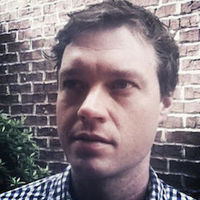"The kind of stories I've gotten to do have involved fulfilling my childhood fantasies of having an adventurous life. Even though I don't make a ton of money doing it, I've never felt like I was missing out on something."
Matthew Power, a freelance journalist and friend, died on assignment in Uganda on Monday.
Above is Matt's Longform Podcast, recorded in February 2013. Some of our favorite stories from his archive:
Confessions of a Drone Warrior (GQ • Oct 2013)
During his nearly six years in the Air Force, Airman First Class Brandon Bryant flew hundreds of missions and logged almost 6,000 hours of flight time. He killed or helped kill 1,626 people. And he never left Nevada.
Mississippi Drift (Harper's • Mar 2008)
An ill-fated trip down the river with a group of anarchists.
Excuse Us While We Kiss The Sky (GQ • Mar 2013)
Navigating the sewers of London and summiting the peaks of Paris with a group of urban explorers.
Blood in the Sand (Outside • Jan 2014)
Investigating the murder of a Costa Rican conservationist.
One More Martyr in a Dirty War (VQR • Jun 2007)
The life and death of Brad Will.
Lost in the Amazon (Men's Journal • Jun 2009)
One man's absurd quest to become the first person to walk the entire length of the Amazon River—floods, electric eels, and machete-wielding natives be damned.










